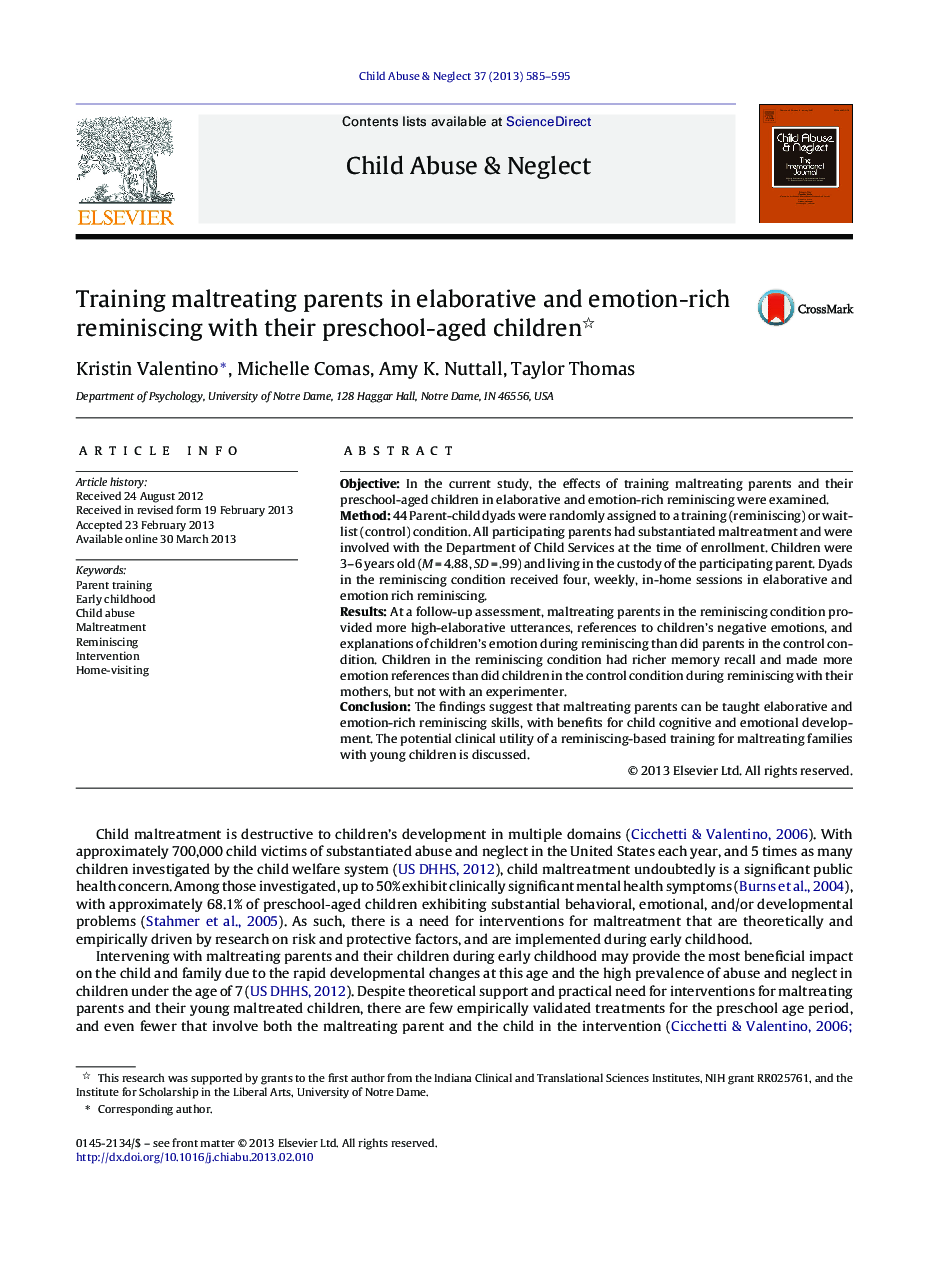| Article ID | Journal | Published Year | Pages | File Type |
|---|---|---|---|---|
| 344800 | Child Abuse & Neglect | 2013 | 11 Pages |
ObjectiveIn the current study, the effects of training maltreating parents and their preschool-aged children in elaborative and emotion-rich reminiscing were examined.Method44 Parent-child dyads were randomly assigned to a training (reminiscing) or wait-list (control) condition. All participating parents had substantiated maltreatment and were involved with the Department of Child Services at the time of enrollment. Children were 3–6 years old (M = 4.88, SD = .99) and living in the custody of the participating parent. Dyads in the reminiscing condition received four, weekly, in-home sessions in elaborative and emotion rich reminiscing.ResultsAt a follow-up assessment, maltreating parents in the reminiscing condition provided more high-elaborative utterances, references to children's negative emotions, and explanations of children's emotion during reminiscing than did parents in the control condition. Children in the reminiscing condition had richer memory recall and made more emotion references than did children in the control condition during reminiscing with their mothers, but not with an experimenter.ConclusionThe findings suggest that maltreating parents can be taught elaborative and emotion-rich reminiscing skills, with benefits for child cognitive and emotional development. The potential clinical utility of a reminiscing-based training for maltreating families with young children is discussed.
